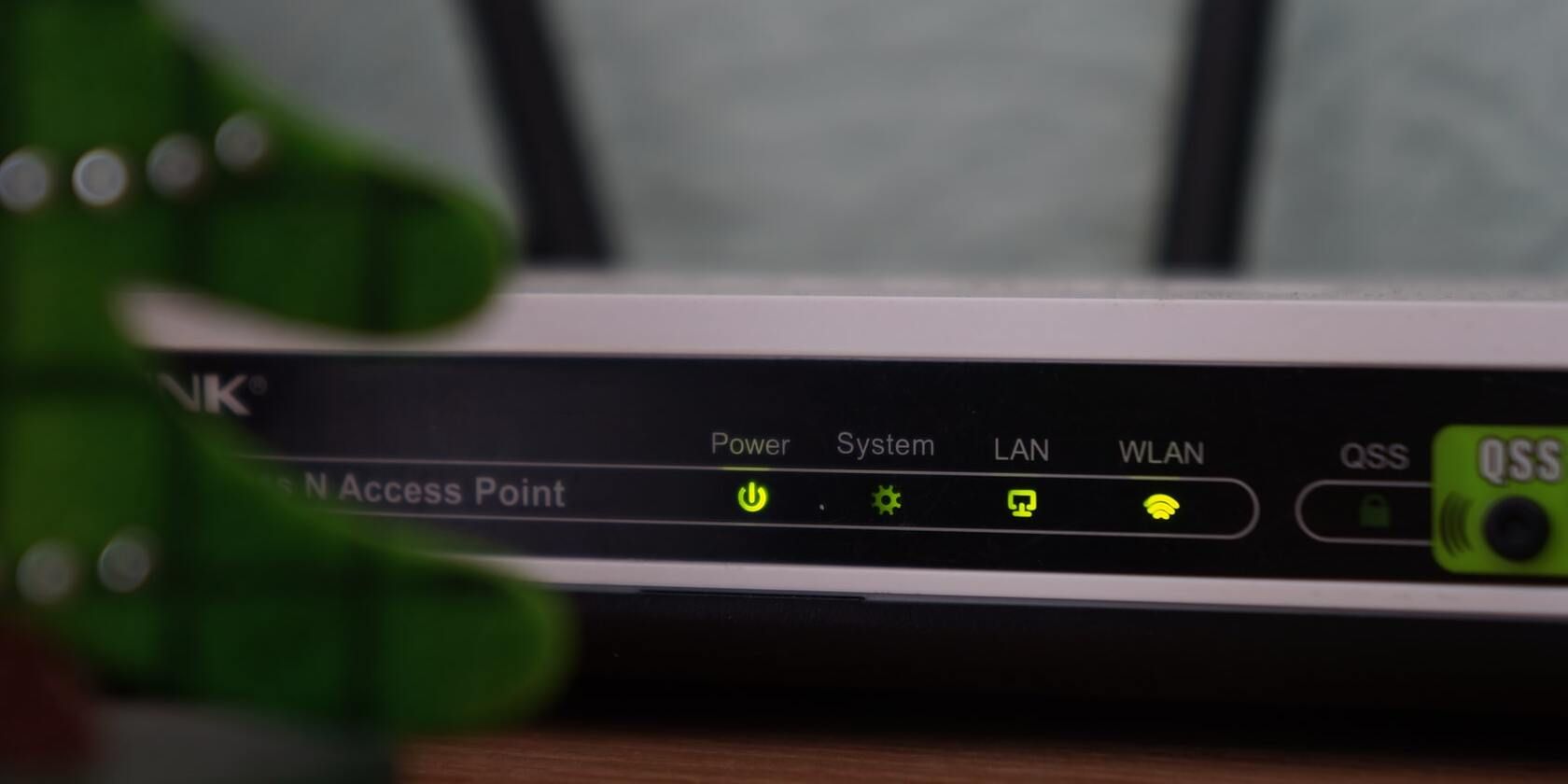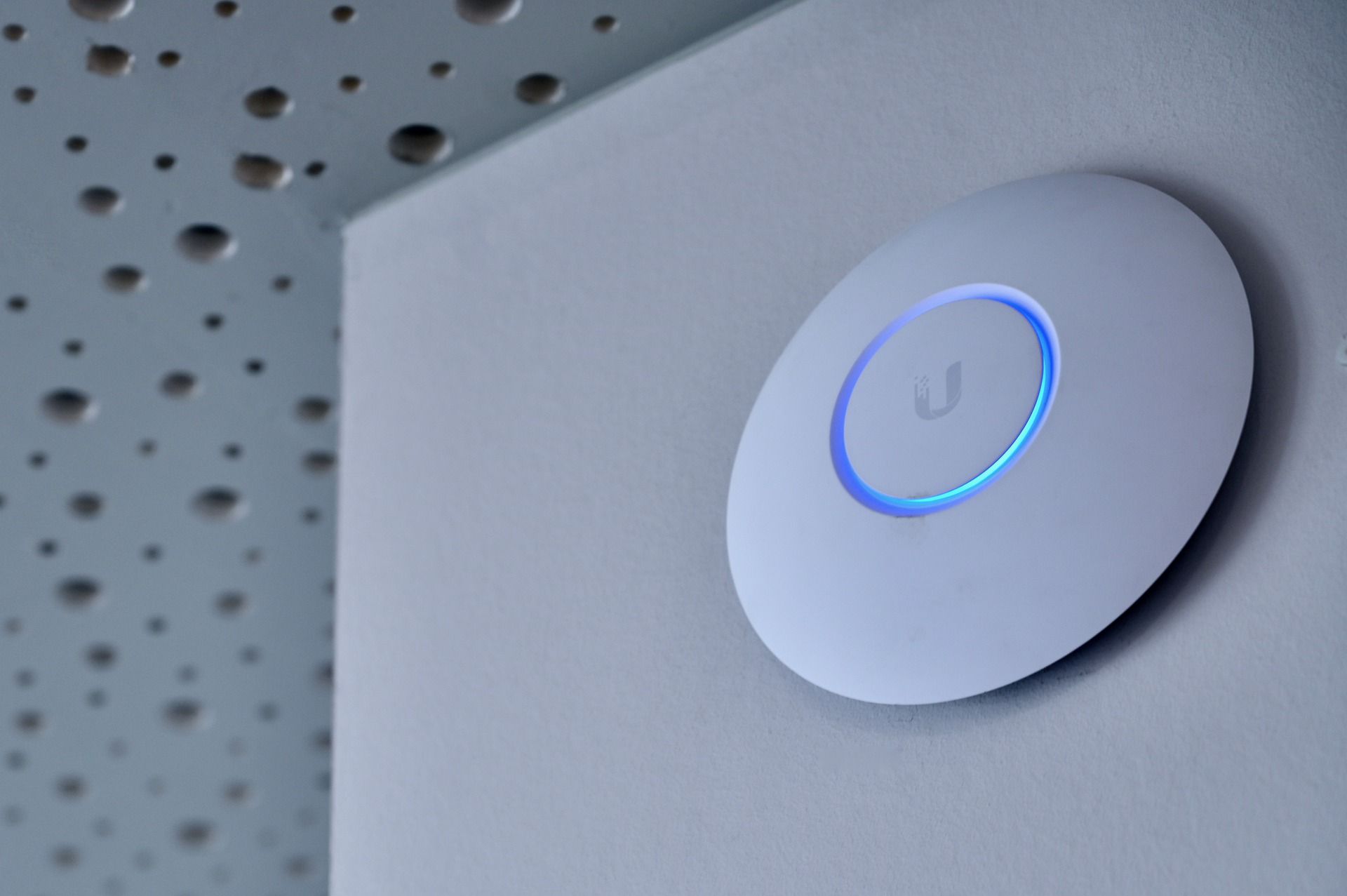If a single router fails to provide adequate coverage throughout your house, you might be looking at other options. A Wi-Fi range extender is often a popular choice because it's cheap and readily available.
Another option is to install a network of mesh routers throughout your space. If you're confused between a Wi-Fi extender and a mesh router, here's a quick rundown of these devices to help you make an informed decision.
What Is a Wi-Fi Extender?
A Wi-Fi extender is a small device that connects to your primary Wi-Fi network and simply repeats that signal. The extender has its own broadcast name, but it simply relays traffic back to your main router. So, if your main router is too far away, you can get coverage by connecting to the extender.
What Are Mesh Routers?
A mesh router system will replace your existing router and unlike a Wi-Fi extender, does not broadcast the signal from a singular point. Instead, mesh router networks often have several nodes deployed throughout the building.
These nodes provide coverage, creating an extensive wireless network to cover the entire property. You can place these nodes in different rooms and rely on smart technology to balance signals.
One of the nodes is connected to the physical Ethernet connection, and unlike Wi-Fi extenders, all of them broadcast using the same network SSID.
The Pros and Cons of Wi-Fi Extenders
Now that you have a basic understanding of Wi-Fi extenders, let's look at the advantages and disadvantages of these tiny devices.
Advantages of Wi-Fi Extenders
Arguably the biggest benefit of using Wi-Fi extenders is that they're cheap to deploy. In general, Wi-Fi extenders cost between $15 and $100. It's a simple and cost-effective solution that does the trick for most people.
Secondly, Wi-Fi extenders are generally quite easy to set up and deploy. All you have to do is plug it in, and you're good to go. Just configure it using your primary router, and you can easily manage it through that portal. It's a simple solution that's ideal if you want coverage in a smaller area.
The good thing about Wi-Fi extenders is that they do their job quite well. If your primary aim is to get rid of dead spots throughout a small office space or your house, a Wi-Fi extender will do just that. The basic models offer coverage up to 1,200 square feet, whereas some models even go as high as 4,500 square feet.
Disadvantages of Wi-Fi Extenders
The biggest downside to using Wi-Fi extenders is that you'll have to switch between networks manually. Since the broadcast name is different, your device will probably stick with the weak signal until it's entirely out of range before it switches automatically.
That means spotty connectivity until you decide to make the switch yourself. More importantly, range extenders are not suitable if you live in a larger house or you need to cover a space with multiple floors.
You'll have to buy quite a few Wi-Fi extenders, and it's always a hassle setting up multiple SSIDs and switching between them. This also creates complications when configuring multiple extenders, as managing them all together is often a bit confusing and tedious.
The Pros and Cons of Mesh Routers
Next, we'll discuss the benefits and drawbacks of deploying a mesh Wi-Fi router network.
Advantages of Mesh Routers
The biggest advantage that mesh Wi-Fi routers have over typical range extenders is that a single network covers the entire property. You get seamless coverage no matter where you are, and you don't have to worry about wireless dead zones or switching between networks either.
Another major benefit of using mesh routers is that they're virtually self-configuring. The setup process is straightforward, as the access point automatically detects your network settings and configures all the nodes.
It's also fairly simple if you want to add or remove nodes. You can use the software to easily add new nodes or remove existing ones. It's a simple, one-click, visual process that anyone can execute.
And more importantly, let's not forget that mesh router systems generally look great. Their aesthetic design is incredibly appealing, and their minimalism will seamlessly blend into your home decor.
Another thing to note here is that most mesh systems use intelligent technologies to relay traffic throughout the house seamlessly. For instance, if you're connected to a particular node in your basement, and there are no connections on the first floor, it'll only relay data packets from the node in your basement.
Ultimately, this means faster speeds, especially since they have multiple radios to send or receive information quickly.
Disadvantages of Mesh Routers
While mesh routers are great, they're not without drawbacks. The price point is the most significant disadvantage that mesh systems have compared with Wi-Fi extenders. Mesh routers are pretty expensive, often starting from around $200.
The more pricey enterprise variants can easily climb into the thousands. Spending hundreds just to cover a few dead zones doesn't cut it for many people.
Secondly, the installation process, while easy, is still time-consuming. Mesh routers are not plug-and-play like Wi-Fi extenders. You'll have to strategically place each node throughout the house, which often means drilling or placing the router on the wall using an adhesive solution.
In certain situations, you may need to call an electrician over to fix the wiring and install the nodes throughout the house, which further adds to the costs.
Wi-Fi Extenders vs. Mesh Routers: Which One Is Better?
If price is no concern, then modern mesh router networks are definitely the way to go, especially since many excellent options are now available.
If you want coverage in a larger area and don't want to worry about random signal drops, deploying a mesh network is ideal. They cost a bit more upfront, but the benefits far outweigh the cons, especially in the long run.
You get stable connectivity, a seamless wireless network, and a highly modular network that adapts to your needs. You don't have to worry about making compromises on speed either as you move through the house.



